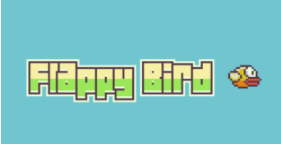![The secret to the addictive game lies in its simplicity. [Gears Studios]](http://www.jstudentboard.com/reporter/wp-content/uploads/2014/02/Screen-Shot-2014-02-04-at-11.13.12-AM.png)
The concept is simple: guide a flapping bird between pipes in a “Super Mario Bros.”-esque environment by tapping the screen repetitively. Just one touch of an obstacle will make the bird drop like a stone, ending the game. Despite not having any plot or incentives, the game has amassed over a million downloads on the Android market alone.
While “Flappy Bird” may seem unique in its incredible popularity, many other apps have at one point been in its place. “Fruit Ninja,” “Doodle Jump,” “Temple Run”–these games have more in common than the ability to evoke nostalgia; each of them has also had its run on the top charts of the App Store, downloaded by millions.
The secret to their popularity lies primarily in their simplicity.
Whether it be flying a bird, slashing fruit, or escaping a temple, the concept of each game is basic. This simplicity and easy gameplay allow the app to reach a maximum demographic: if you can tap the screen, you can play.
“The concept is so basic, but that’s what makes it addictive,” said Christina Hong, an avid “Flappy Bird” player, when contacted by JSR. “Because it’s so simple, you expect to get a high score. So you play until you do.”
Besides their simplicity, these games are made popular due to their competitiveness. Players delight in beating their peers’ scores, capturing triumphant screen shots of their accomplishments when they do. Photos of exceptionally high scores circulate on the Internet with replies of disbelief, while worldwide high scores are posted on the iOS Game Center. This competition fuels the popularity by providing a goal.
“Even if it’s by one point, I feel extremely accomplished when I beat someone’s score,” said Linda Lee, who plays the game on her Android.
“I don’t need to play my best in the game,” she continued, “I just need to beat one person. It gives me small goals to work towards and the gratification produced by achieving them is worth the hours spent playing.”
If “Flappy Bird” is anything like its predecessors, its popularity will die out as quickly as it appeared. Just take a look at “Temple Run 2,” which peaked at #3 on the iTunes charts but dropped to #38 a month later.
But fear not, game fans: another app will surely take its place.

